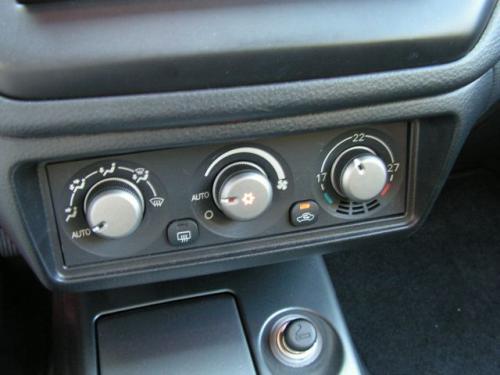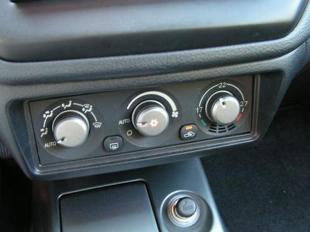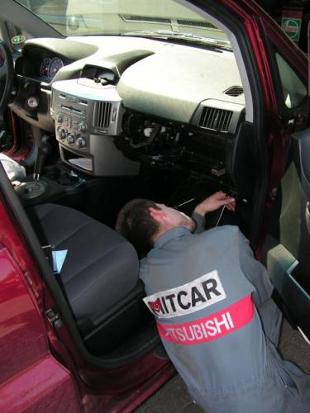
Take care of the climate
 Air conditioning in a car is a great invention. It works well not only in summer, on hot days, but also in autumn and winter, when it almost immediately removes steam from the windows.
Air conditioning in a car is a great invention. It works well not only in summer, on hot days, but also in autumn and winter, when it almost immediately removes steam from the windows.
Air conditioners in cars are not the cheapest devices. Therefore, it is worth monitoring the condition of all their components, and eliminating any shortcomings on a regular basis, without waiting for the installation to completely stop working. 
The air conditioning system in a car consists of several main components: a compressor, a condenser, a water seal, an expansion valve, an evaporator, connecting elements and a control panel. In an automatic air conditioner, a thermostat is also connected to the control panel, which is responsible for turning the air flow on and off.
The main feature that determines the correct operation of the system is its tightness. Every A/C repair shop should test the unit for leaks before recharging the system. To do this, both specialized devices (pressure, vacuum) and simpler, but in many cases no less effective methods are used (for example, nitrogen staining when checking the installation with a luminescent substance or the "bubble" method). The tightness should never be checked due to high humidity.
Leaks are usually caused by mechanical damage resulting from worn connections, all kinds of small impacts, improper handling of the unit during sheet metal repair and mechanical repairs, and in the case of cars imported from abroad, their unprofessional demolition at the border.
The main factor causing depressurization is corrosion, which occurs as a result of the lack of protection of the installation from moist air entering it during various types of repairs. A true professional will immediately plug the mounting holes immediately after disconnecting the cables and components of the air conditioner. Corrosion is also caused by moisture gradually penetrating the system through porous pipes, and it must also be remembered that old compressor oils can be very hygroscopic.
Because air conditioning is a closed system, any leak requires the entire installation to be repaired. This applies not only to leaks associated with the refrigerant circulating in the system, but also to any leak of oil that lubricates the compressor. So there shouldn't be any stains under the car - neither water nor oil (because compressor oil is relatively liquid, its stain may look like water at first glance).
Another cause of malfunctions is compressor failures. A typical mechanical damage is the wear of the friction surfaces of the compressor clutch. The result is a sliding disk on a pulley with high heat dissipation. This, in turn, damages the pulley bearing, the electro-clutch solenoid, and may also damage the compressor seal itself. Similar damage can occur as a result of corrosion resulting from not using the air conditioning system for a long time (for example, in winter). Corrosion on components  clutch friction causes such a compressor to slip when started, generating a large amount of heat.
clutch friction causes such a compressor to slip when started, generating a large amount of heat.
Filters and disinfection
The air conditioning system should be checked at least once a year and topped up with coolant if necessary. Every year, 10 to 15 percent of the system is naturally lost. coolant (mainly through porous pipes and all seals). It must be remembered that the factor circulating in the air conditioning system is also the carrier of the oil that lubricates the compressor.
During inspection, the system should be disinfected by introducing a special preparation into the air intake. Disinfection is necessary because water condenses in the air ducts, and a humid and hot environment is an ideal breeding ground for bacteria, fungi and other microorganisms that give off a rather unpleasant musty smell. You should also take care of the cabin filter and replace it if necessary. Less and less air enters the cab through a clogged filter, and the ventilation fan motor can also fail. The result of a faulty filter is fogging of the windows and an unpleasant smell in the car.
You also need to take care of the filter-drier. Removes moisture and fine debris from the A/C system, protecting the compressor and expansion valve from damage. If the filter drier is not changed regularly, moisture in the system will corrode all of its components.
The cost of inspecting an air conditioner in a specialized service center without materials is about PLN 70-100. Filling the system with coolant and oil - from PLN 150 to 200. Disinfection of the evaporator costs approximately PLN 80 to 200 (depending on the preparations used), and cabin filter replacement costs from PLN 40 to 60.
Symptoms of a malfunctioning air conditioning system:
- poor cooling
– increased fuel consumption,
- more noise
- misted windows
- bad smell
How do I care for my air conditioner?
Summer:
– always park in the shade whenever possible,
– leave the door open for a while before driving,
- at the very beginning of the journey, set the cooling and airflow to the maximum,
– the first few minutes to drive with the windows open,
– do not allow the cabin temperature to drop below 22ºC.
In winter:
- turn on the air conditioner,
- direct the air flow to the windshield,
– turn on the air recirculation mode (in some cars it is impossible together with the windshield, then proceed to the next step),
– set the fan and heating to maximum.
Generally:
– turn on the air conditioner at least once a week (also in winter),
- take care of the V-belt,
– avoid refrigerator repair services that do not have the necessary tools, materials or knowledge.
